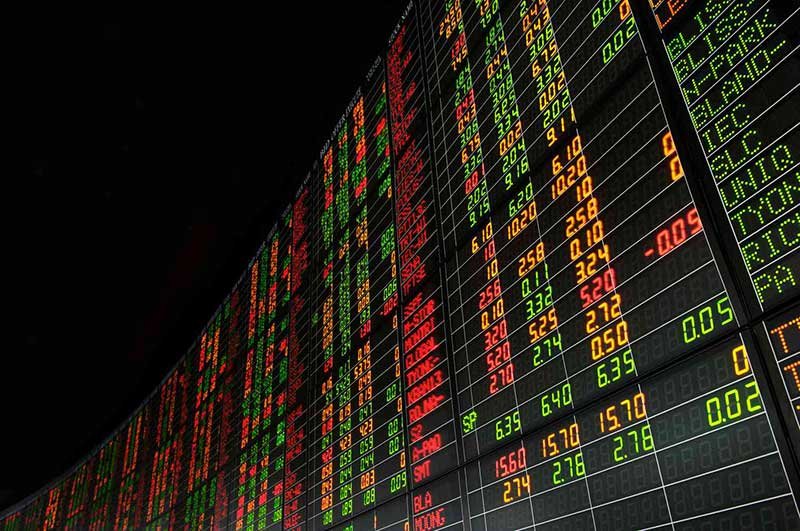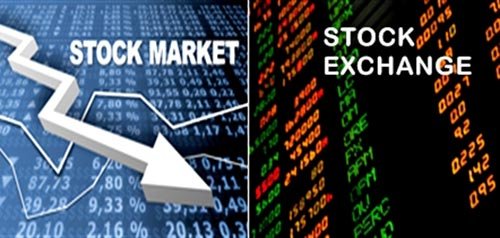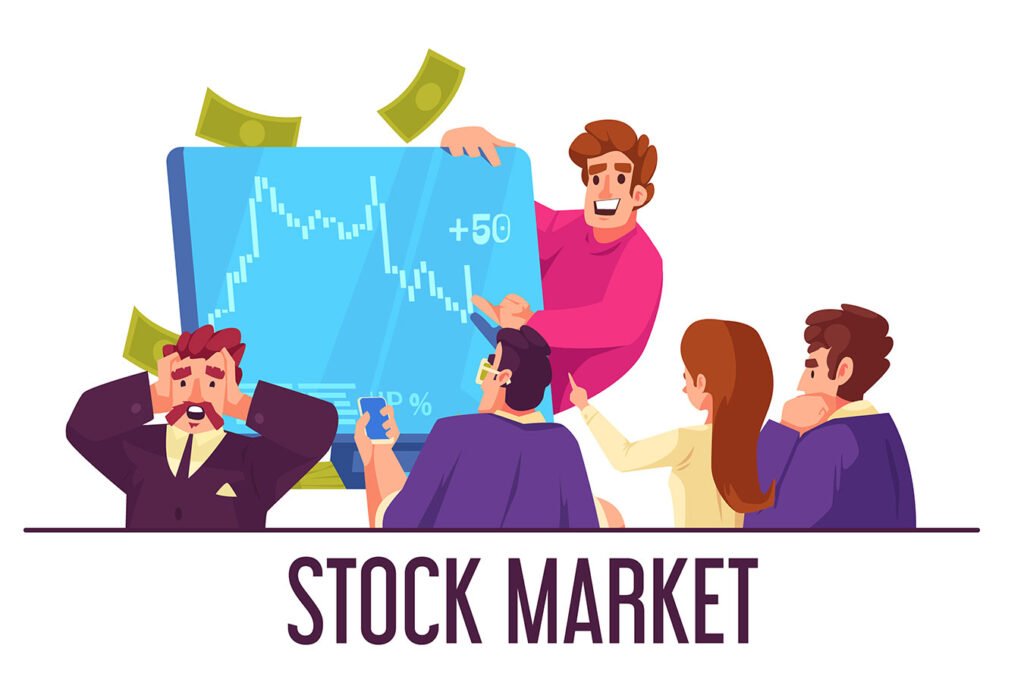A stock exchange is like a big, centralized marketplace where buyers and sellers trade different financial securities, like stocks, bond and derivatives. It gives companies a platform to raise money by selling shares to the public. And it lets investors buy and sell those shares. Stock exchanges have been around since the 1600s.
Today, major ones like the New York Stock Exchange (NYSE) and NASDAQ handle billions of dollars in trades every day. In financial world, the role of stock exchange cannot be overlooked. They provide a regulated space for setting prices, enabling trading and helping companies access investment capital.
How Stock Exchanges Work

Stock exchanges run on an auction-style system where buyers and sellers place competing bids and offers at the same time. Traditional floor trading has largely been replaced by electronic trading platforms. They now coordinate orders and execute trades efficiently. These systems bring together the buyers and sellers, helping set fair security prices based on supply and demand dynamics.
When an investor enters an order to buy or sell a stock, the exchange matches it with a corresponding order on the other side of the trade. The exchange’s technology makes sure trades happen at the best price available, following predefined rules and prioritizing orders by factors like price and timing.
Once a trade is executed, the exchange helps to settle the transaction by transferring ownership of the securities and funds between the parties involved. This whole process relies on stock exchanges to enable fair, transparent and efficient markets.
Role of Stock Exchanges
Stock exchanges have some big functions beyond just enabling trades. They serve functions that play important roles in making financial markets and economies work better. Some functions which are defined here are:
Discovering Prices

Stock exchange play a huge role in price discovery. This means bringing together buyers and sellers to figure out what securities are really worth through basic supply and demand.
As investors place orders based on their assessments, the exchange’s system takes all that information and finds equilibrium prices reflecting the market’s views. This price discovery makes sure prices accurately capture available information, promoting efficiency and transparency.
Liquidity and Marketability

Another key role of Stock Exchange is providing liquidity and marketability for securities. Liquidity means how easy an asset converts to cash without changing its price much. Exchanges create ongoing markets for trading securities, so investors can buy and sell shares quickly and smoothly. This liquidity improves marketability, letting investors easily cash out holdings when needed.
By ensuring plenty of buyers and sellers, exchanges make liquid and active markets. This reduces the risk of investors getting stuck and unable to trade when desired. Maintaining this liquidity and marketability attracts investment and enables efficient capital flows.
Facilitating Capital Formation and Economic Growth
Stock exchange play a big role in raising money for new projects and boosting economies. They let companies sell shares to public so they can get funds to expand, innovate and create jobs. This investment helps to accelerate economic growth.
Stock exchanges channel people’s savings into productive investments too. Investors buy up shares, giving their savings to companies who can put that money to use and put it in their businesses. This cycle generates wealth and contributes to economic progress.
Keeping the Market Fair and Safe
A top job of stock exchanges is keeping the trading scene fair and secure. They create comprehensive rules that all players must follow, covering things like listing requirements, disclosing information, preventing insider trading and protecting investors.
By requiring transparency and tight regulations, exchanges aim to keep integrity intact and look out for investors’ interests. They watch trading activity closely, investigate shady behavior and slap penalties on wrongdoing. This oversight deters fraud and manipulation, building confidence so the market can thrive.
Spreading Equity Culture

A big role of stock exchange is spreading the equity culture – getting more everyday people to feel good about buying stocks and other securities. Exchanges educate people on why investing in the market is smart and safe. Through IPOs, good trading practices and teaching investors, they aim to grow a culture of owning equity.
By making the process of trading shares more open and understandable, exchanges help take the anxiety out of investing in stocks and attract more individual investors. Widespread participation not only brings in more money but also gives people a stake in the economy. This equity cult is key for a strong and inclusive financial system.
Acting as an Economic Barometer
Another vital stock exchange’s role is serving as an economic barometer, showing shifts in the economy through share price moves. Stock prices bounce around based on tons of factors – company profits, interest rates, inflation, investor mood and more. As these economic indicators change, they are quickly incorporated into stock valuations, making stock exchanges an accurate indicator of the overall health of the economy.
By tracking market trends and swings, investors, policymakers and analysts can get insight into industry performance and the broader economic state. Rising stocks often signal growth and confidence, while falling prices can mean slowdown or recession. This role as economic barometer is priceless for smart decisions and policy.
Providing Scope for Speculation
Another key exchange role is providing a place for speculation that has rules and oversight. Speculation means buying and selling stocks to profit from price changes rather than long-term gains like dividends. While risky, it offers chance for big rewards too.
Exchanges enable healthy speculation by ensuring liquidity and continuous trading. They create guidelines to keep speculative plays legal and above board. This controlled speculation improves liquidity, tight bid-ask spreads and efficient price discovery.
By offering a space to speculate, exchanges let investors try capitalizing on short-term price moves and market sentiment. However, speculation needs caution – using smart risk management and emotional discipline. The exchange’s role in enabling regulated speculation keeps markets dynamic and fluid.
Major Global Stock Exchanges

Stock trading happens on few huge global marketplaces that enable all those key exchange roles. Here are some top stock exchanges around the world:
- New York Stock Exchange (NYSE): The biggest exchange globally – located in New York City. Has over $25 trillion market value as of December 2023. It has been in operation since 1792 and is a part of the Intercontinental Exchange.
- NASDAQ: Also in New York. Second largest exchange, around $21.7 trillion market cap. Known for electronic trading and many tech listings.
- Shanghai Stock Exchange (SSE): One of China’s big exchanges. Market cap of about $6.7 trillion in 2023. Trades stocks, bonds and mutual funds.
- Euronext: Europe’s largest exchange, created by merger of Amsterdam, Paris, Brussels and other city exchanges. Over $7.2 trillion market value in 2023.
- Tokyo Stock Exchange (TSE): Fifth biggest globally, part of Japan Exchange Group. Market cap approximately $6.54 trillion. Home of Nikkei 225 index.
- Shenzhen Stock Exchange: Second biggest in China, 2023 market cap over $6.22 trillion.
Other significant names include London Stock Exchange, Bombay Exchange, National Stock Exchange of India, Hong Kong Exchange and Toronto Stock Exchange. These global hubs enable capital formation, price discovery and growth.
Features Of Stock Exchange
Stock exchanges give an organized spot to buy and sell securities. They bring together buyers and sellers so shares, bonds and other financial products can be traded. Some key things stock exchanges do:
- Create a structured marketplace with clear rules.
- Make sure trading happens fairly through strict oversight.
- Help set fair prices based on supply and demand.
- Provide liquidity by connecting many buyers and sellers.
- Let companies raise money by listing shares to enable growth.
- Protect investors through transparency rules and monitoring.
By facilitating transparent and regulated trading, stock exchanges help financial markets and economies work better.
Difference Between Stock Market and Stock Exchange

Stock market and stock exchange refer to related ideas. Stock market means whole ecosystem around trading shares – exchanges, over-the-counter platforms, and any place stock trading happens.
A stock exchange is a specific organized marketplace where stocks and securities trade under regulation. It’s a place within the larger stock market where buyers and sellers come together for transparent price discovery and liquidity.
While stock market covers all share trading activities, a stock exchange is a regulated venue enabling exchanges between buyers and sellers.
Importance of Stock Exchanges

Stock exchanges need various participants to run smoothly:
- Investors (individuals and institutions): Investors drive stock exchanges by buying and selling based on goals and strategies.
- Stockbrokers and trading members: These middlemen execute trades for investors using the exchange’s platforms.
- Listed companies and issuers: Companies list securities on exchanges to raise money and create liquidity.
- Regulators like SEC: They oversee exchanges to ensure fair practices and protect investors.
These players work within the exchanges’ rules to enable good price discovery, capital formation and economic growth.
Conclusion
Stock exchanges have a complex but important role in financial markets. They give a centralized, regulated spot for capital raising, price discovery, liquidity and growth. With transparency and oversight, exchanges promote fair trading, protect investors and contribute efficiency to the system.
As markets evolve, stock exchanges will face new challenges while continuing to play an important role in channeling investments and driving economic progress.
To effectively handle stock market’s complexities, having a solid grasp of key terminology is critical. Our extensive Stock Market Terminology guide offers a valuable base for new and veteran investors alike.


